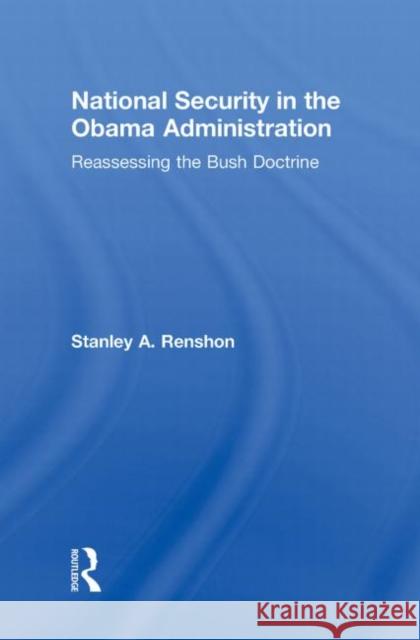National Security in the Obama Administration : Reassessing the Bush Doctrine » książka
National Security in the Obama Administration : Reassessing the Bush Doctrine
ISBN-13: 9780415804066 / Angielski / Twarda / 2009 / 291 str.
National Security in the Obama Administration : Reassessing the Bush Doctrine
ISBN-13: 9780415804066 / Angielski / Twarda / 2009 / 291 str.
(netto: 839,61 VAT: 5%)
Najniższa cena z 30 dni: 856,36
ok. 22 dni roboczych.
Darmowa dostawa!
This study examines the Bush Doctrine and its effect and influence on the new national security agenda of President Obama.
As long as the United States still faces unique post-9/11 threats, the Bush Doctrine is likely to be part of the framework for addressing them. What parts of the Doctrine should be retained, what parts should be modified, and what parts should be discarded can only be assessed after fairly and clearly setting out and analyzing the Bush Doctrine, in reality.
President Barack Obama will face a host of new national security issues, but the United States will still have to address the formidable and basic national security questions that have arisen after 9/11. How will the new administration respond to the threat of catastrophic terrorism? How will they respond to the threats posed by dangerous governments and leaders? When, and under what circumstances will they employ military force in the post- 9/11 world?
None of these questions will be considered in a vacuum. Since 9/11 the United States has been operating under a set of strategic premises outlined in the developing policies of the Bush Doctrine. Obama campaigned heavily on his differences with President Bush’s national security policies, and it will be tempting for his administration to jettisone the Bush Doctrine. Yet this could prove a costly, unnecessary error. Before we jettison the Bush Doctrine it would be prudent to understand what it really is. It’s fair to say that the Doctrine has been more criticized than understood. These policies, their premises, and their implications deserve careful and thoughtful debate.
This book addresses the following questions that an Obama administration will have to face:
- How can the United States avoid being the victim of anther major terrorist attack, possibly from WMDs?
- What roles do the doctrines of prevention, preemption, containment, and deterrence play in the range of threats with which the United States and its allies must now contend?
- How can the United States resolve the dilemma of needing the cooperation of allies who may have differing priorities?
- In what way will the U.S. work with international institutions to further develop a liberal democratic world order and its own legitimacy?
- How can the United States address the challenge of a fervent and aggressive religious ideology?











